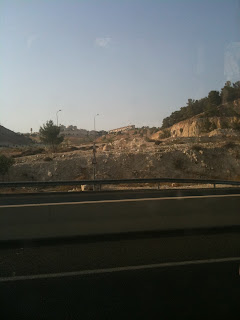"A person's trust in the Creator in all matters pertaining to income and livelihood
is the truest test of faith."
Backtrack several years, to the time when we used to come to Israel for a few weeks at a time. Back then, we seemed to often find ourselves walking on Ben Yehuda, the pedestrian mall in the center of Jerusalem that attracts hordes of tourists and, as a result, many charity collectors. Most of the charity collectors are men and most of them are Hebrew speakers.
Which made meeting Esther a little unusual. Esther was born in America. She was on the streets collecting charity for her family and for the families of other single mothers. She probably approached us because she heard us speaking English.
After talking to her for a brief time, we identified a mutual acquaintance from Baltimore. We gave her more money than we normally would on the street and went on our way. Over the years, I've seen Esther near Ben Yehuda a handful of other times, but not in the last year or so.
Then about two weeks ago, she stopped me and, though it wasn't clear she remembered me, I remembered her. I gave her a small donation and she heaped upon me many brachot and words of spiritual encouragement. Here she was, collecting charity on the streets to feed her children and she was telling me how wonderful Hashem is. I walked away inspired.
I went home and took a larger bill from our charity account, put it in my backpack and made a mental note to give it to Esther the next time I saw her. I walk that way almost every day, so I looked for her whenever I was in the vicinity, but days and days passed and I didn't spot her. I told myself that, when the time was right, Hashem would put me in her path.
So comes last Thursday and I have my nose in a book all about how our sustenance comes to us from Hashem. He uses messengers, but we are meant to understand that our livelihood is a gift from Hashem, which is basically the message Esther gives to people who meet her on the streets of Jerusalem. I read this first line, close the book so I don't bump into anyone on the busy street and, as we say in Israel - pitom! Suddenly, Esther appears in my line of vision. It seemed so right that she should appear, after more than a week of looking for her every day, exactly a moment after I read about how, "A person's trust in the Creator in all matters pertaining to income and livelihood is the truest test of faith."
I smile a huge smile at the timing of The Big Guy. What a gift of pedagogy He has.
Later that afternoon, I got on a bus home and, sticking out of the driver's rearview mirror, I saw this flag:
 |
| The flag says "Hashem is the King." |
Sometimes, living in Israel is like having a private conversation with Hashem.









